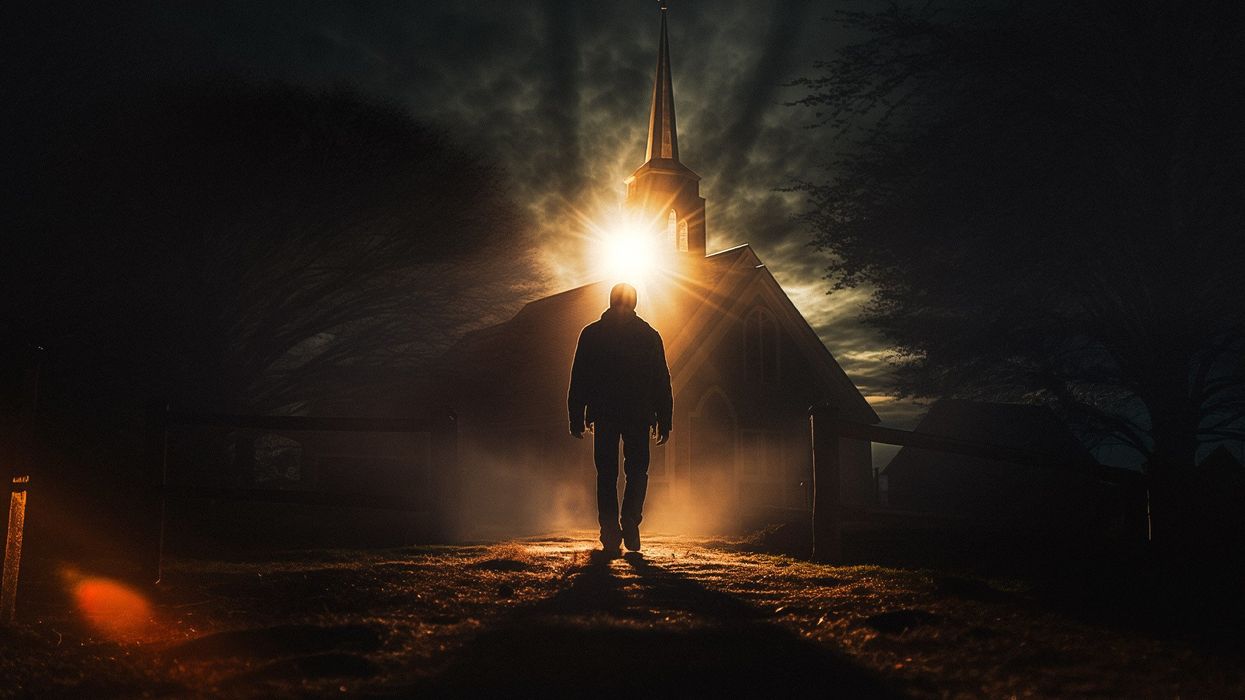
Blaze Media Illustration | Getty Images

Conservatives like to believe that restoration of constitutional governance will fix our woes, but the founding document cannot make a people virtuous or free.
Most conservatives view the U.S. Constitution as the central element that binds the identity of the nation together, but constitutions do not make peoples; peoples make constitutions.
The Catholic political theorist and enlightenment skeptic Joseph de Maistre believed that no true constitution can ever be written by human hands but can only be inscribed on the hearts of a nation’s people by the almighty God. For Maistre, the notion that a constitution would, in and of itself, create the character of a nation was absurd. The values and norms contained in a constitution reflect the traditions and folkways that organically emerge from the character of a people.
America’s founders understood the protestant Christian moral vision shared by most of the populace was critical to the nation’s success.
The shared moral vision of the people, which serves as the real force of the constitution, pre-exists the written document itself. Any rights enumerated in the document are only a written formalization of that which is already held deeply sacred by the people, and their protection is entirely dependent on the continuance of that tradition.
Maistre did not push for a universal form of government but instead believed that the best government would be one that naturally fit the needs and traditions of the people over which it ruled. An artificially imposed regime with no connection to the ways in which different communities lived their lives could not hope to govern them well. Virtuous leaders had a duty to guide their people toward a better future, but that could only be done in the context of a shared understanding of the common good. A constitution could not enforce this vision; it could only represent the spirit that already existed within the polis.
America is a vast and complicated nation. It has always been a collection of very different regions, cultures, and traditions separated by the kind of geographical distances that would have formed individual nations in a place like Europe. This is why the country was originally governed as a confederation of separate states instead of one unified whole.
Due to its divergent ways of life, geographical separation, and intermittent waves of large-scale immigration, America never truly achieved ethnogenesis. Instead, it relied on one consistent factor that most of its residents shared: protestant Christianity.
While Catholic, Jewish, and eventually Muslim waves of immigration would all arrive, America’s initial population were protestant Christians, and it is from this firmament that the moral vision of America arose.
America was founded by those who chose to leave their homes and strike out for new lands rather than compromise their way of life, and that deep instinct to prefer exit over assimilation persisted well into the nation’s history.
Due to its size and regional diversity, America never truly formed a single national culture or identity. Whenever two or more groups disagreed, rather than being forced to reconcile and become one people, they simply split, venturing farther and farther into a seemingly endless frontier. A federal model allowed individual communities and states to operate very differently as long as they held to the shared moral framework of protestant Christianity. Subsidiarity, the idea that the political problems should be resolved as close to the locality where they originate as possible, meant that the traditions and folkways of each region could be maintained while still working inside the larger system of the nation.
The religious character of America’s people may have changed, but the bedrock of its founding document has not. In modern America, the Constitution is held up as a secular procedural blueprint for objectively navigating disagreements between groups with vastly different moral visions, but nothing could be farther from the truth. As John Adams explained, the Constitution is made for a moral and religious people, and it is wholly inadequate for the governance of any other.
America’s founders did not believe that the Constitution contained any kind of magical universal property of governance. They understood that the protestant Christian moral vision shared by most of the populace was critical to the nation’s success.
I do not call myself a Christian nationalist, not because I disagree with the idea that biblical principles should be reflected in the laws of our nation but because this has been a core aspect of the American nation since its inception. The problem with the term Christian nationalism is that is turns a crucial pillar of our American identity into a fashionable political slogan that can be easily painted as new and radical by a hostile media elite. An approach to politics that is fundamentally protestant in its character is not revolutionary or novel. It is exactly what the Constitution represents.
As hard as it may be to admit, we are no longer really governed by the Constitution, primarily because we are no longer the kind of people who can be.
Conservatives like to believe that restoration of constitutional governance will fix our woes, but the founding document cannot make a people virtuous or grant them liberty. The Constitution was only ever the formalization of a way of life present in America’s founding stock, and without that shared character, our most precious documents become meaningless. The Constitution was never meant to objectively mediate the differences of two sides with radically different moral visions, and it never will.
Protestant Christianity was central to the identity of the United States and the formation of its Constitution. Until the nation reforges a shared moral vision on that anvil, it will continue to be governed by the corrupt progressive theocratic oligarchy that currently terrorizes its people.
Auron MacIntyre
BlazeTV Host